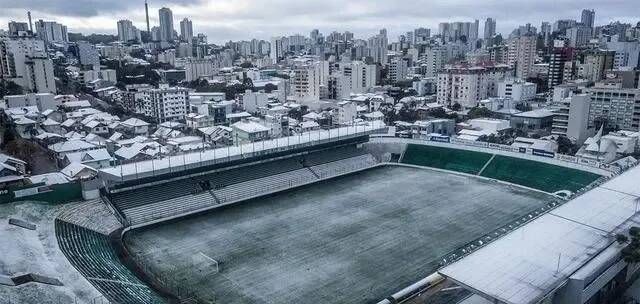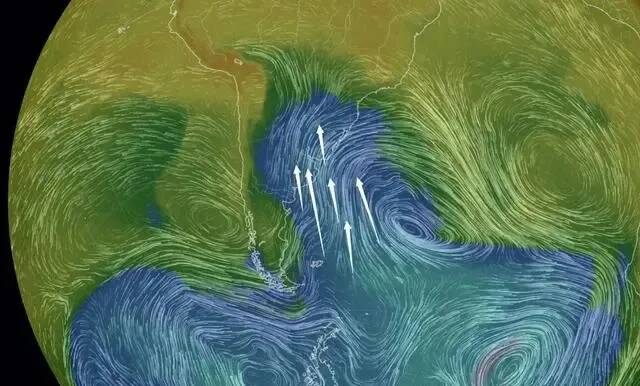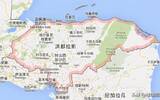Cold current is coming!? Brazil is about to be hit by frost, coffee and other agricultural departments are worried about affecting future production
It is understood that although Brazil is in the southern hemisphere and in the tropics, under normal circumstances, Brazil will have four seasons a year, and every year from June to September will usher in winter.
However, this year, due to the influence of El Ni ñ o, winter shows signs of coming early. As a result, Brazil's National Meteorological Institute announced on April 18 that the first cold wave in 2024 will be felt first in the south, and then to the southeast and central regions.

And there will be cooling in cities such as Curitiba, Rio de Janeiro and S ã o Paulo Victoria, which could be more than 10 ℃ and temperatures around 10 ℃ to 17 ℃.
In addition, frosts are expected in the southern regions of Grand Southern, Santa Catarina and southern Parana. According to the meteorological department, a cold peak, such as a drop in temperature in the future, has been linked to an outer cyclone, which has caused a lot of rain in the south.

However, according to Epagri/Ciram, which monitors the weather in Santa Catarina, the lowest temperature recorded in the morning was 1.95 ℃ in Bom Jardim da Serra, in the mountains of Santa Catarina, while the morning temperature in Urupema in that state was only 2.52 ℃, according to the Civil Defense Department. According to the department's data, the mountains of Santa Catarina and high-altitude areas of the west and some areas of Parana are as low as 5 ℃, which is enough to cause frost, so notices are issued to alert local residents and farmers to the effects of frost on crops.
In addition to recent concerns about weather changes, there are also concerns about the future. According to the latest weather forecast from the latest Climate Forecast Center of the Meteorological Bureau, La Nina weather will form between June and August, and La Nina weather will last for the whole second half of the year.
Brazil predicts that the return of La Nina phenomenon may reduce rainfall and cold weather in southeastern Brazil and increase rainfall and humidity in the northeast. The cold weather will cause a sharp drop in temperature in coffee and other crop-producing areas, which will bring frost disasters and damage the output of coffee and other agricultural products in the current and future seasons.
According to botanical experts, when the temperature drops sharply during frost, the water in plant cells will crystallize and form sharp crystals, which pierce the intima and cell wall and destroy plant cells. It will also cause damage to some dormant plants, damaging cell walls and tissue structures, causing them to fail to grow and bloom normally. Frost will also cause a certain degree of damage to the fruit of crops, resulting in the decline of fruit quality, deformation, peel rupture and so on, and finally affect the yield of crops.
In addition, as early as 2021, Brazil suffered its worst frost in decades, wreaking havoc on crops such as coffee, sugar cane and corn, and pushing up the prices of a range of crops, including sugar, corn and coffee. Therefore, recently, the weather department has issued a warning to remind farmers to take preventive measures.
Important Notice :
前街咖啡 FrontStreet Coffee has moved to new addredd:
FrontStreet Coffee Address: 315,Donghua East Road,GuangZhou
Tel:020 38364473
- Prev

Honduras| Introduction to coffee growing areas and varieties
Honduras Honduras is fully known as the Republic of Honduras. The country is located in the northern part of Central America, bordering the Caribbean Sea to the north and the Gulf of Fonseca in the Pacific to the south. In addition, it borders Nicaragua, El Salvador and Guatemala
- Next

McDonald's has been exposed to using pre-ground coffee powder?!
▲ Click to pay attention| Daily Boutique Coffee Culture Magazine Coffee Workshop Since McDonald's launched the "15-yuan freshly ground coffee breakfast combination", many Maimai fans have bought a breakfast before going to work to enjoy the sobriety brought by cheap freshly ground coffee. However, some time ago, a consumer who went to McDonald's to buy coffee
Related
- What grade does Jamaica Blue Mountain No. 1 coffee belong to and how to drink it better? What is the highest grade of Blue Mountain coffee for coffee aristocrats?
- What are the flavor characteristics of the world-famous coffee Blue Mountain No. 1 Golden Mantelin? What are the characteristics of deep-roasted bitter coffee?
- Can I make coffee a second time in an Italian hand-brewed mocha pot? Why can't coffee be brewed several times like tea leaves?
- Hand-brewed coffee flows with a knife and a tornado. How to brew it? What is the proportion of grinding water and water temperature divided into?
- What is the difference between Indonesian Sumatra Mantinin coffee and gold Mantinin? How to distinguish between real and fake golden Mantelin coffee?
- What does bypass mean in coffee? Why can hand-brewed coffee and water make it better?
- Unexpected! Ruixing Telunsu lattes use a smoothie machine to foam milk?!
- % Arabia's first store in Henan opens into the village?! Netizen: Thought it was P's
- Does an authentic standard mocha coffee recipe use chocolate sauce or powder? Mocha Latte/Dirty Coffee/Salty Mocha Coffee Recipe Share!
- What is the difference between Vietnam egg coffee and Norway egg coffee? Hand-brewed single product coffee filter paper filter cloth filter flat solution!

